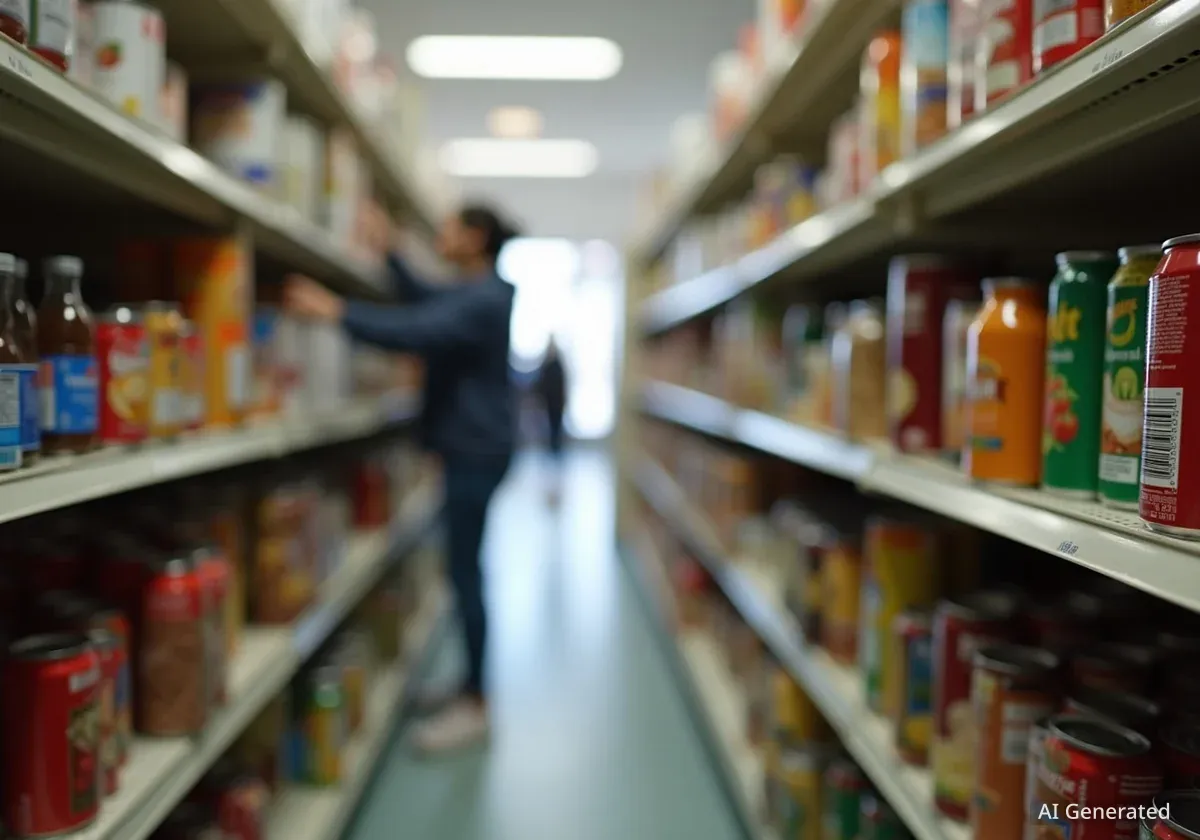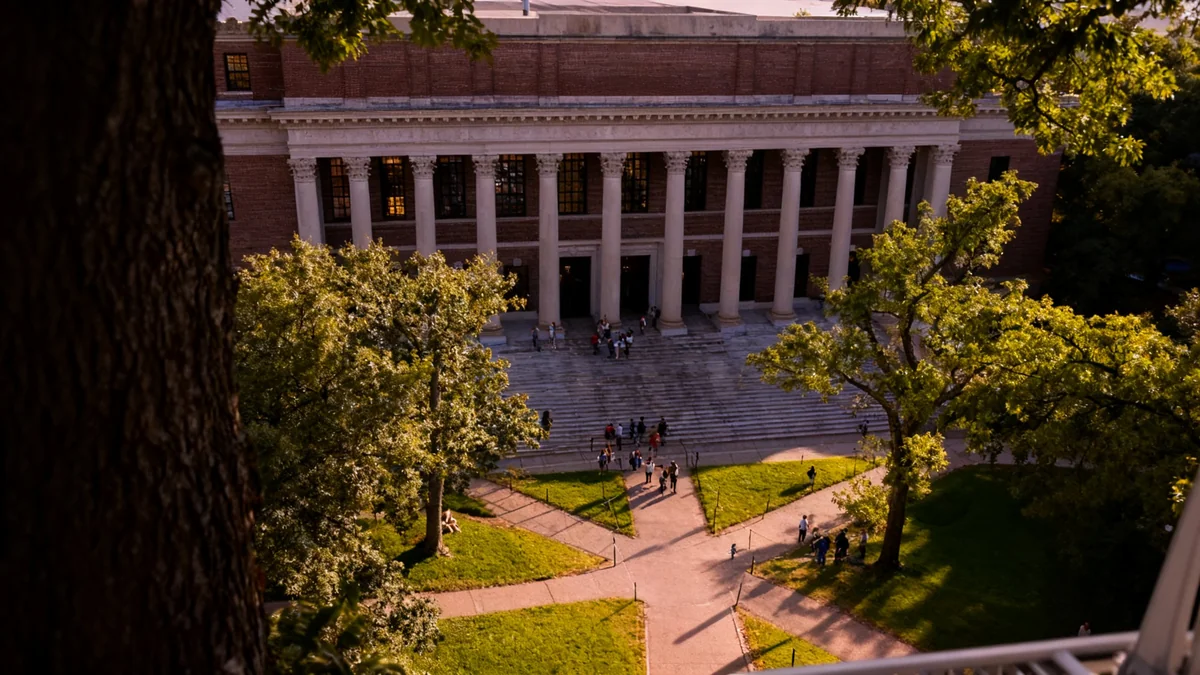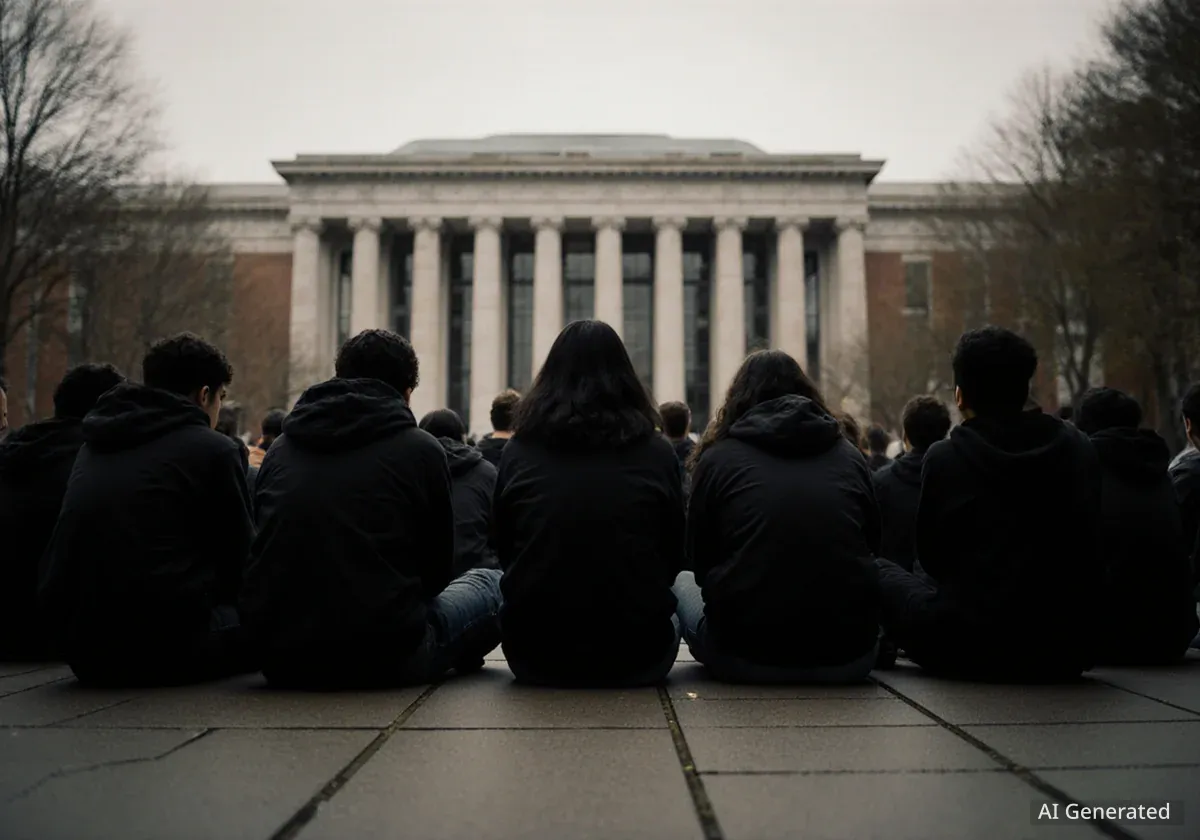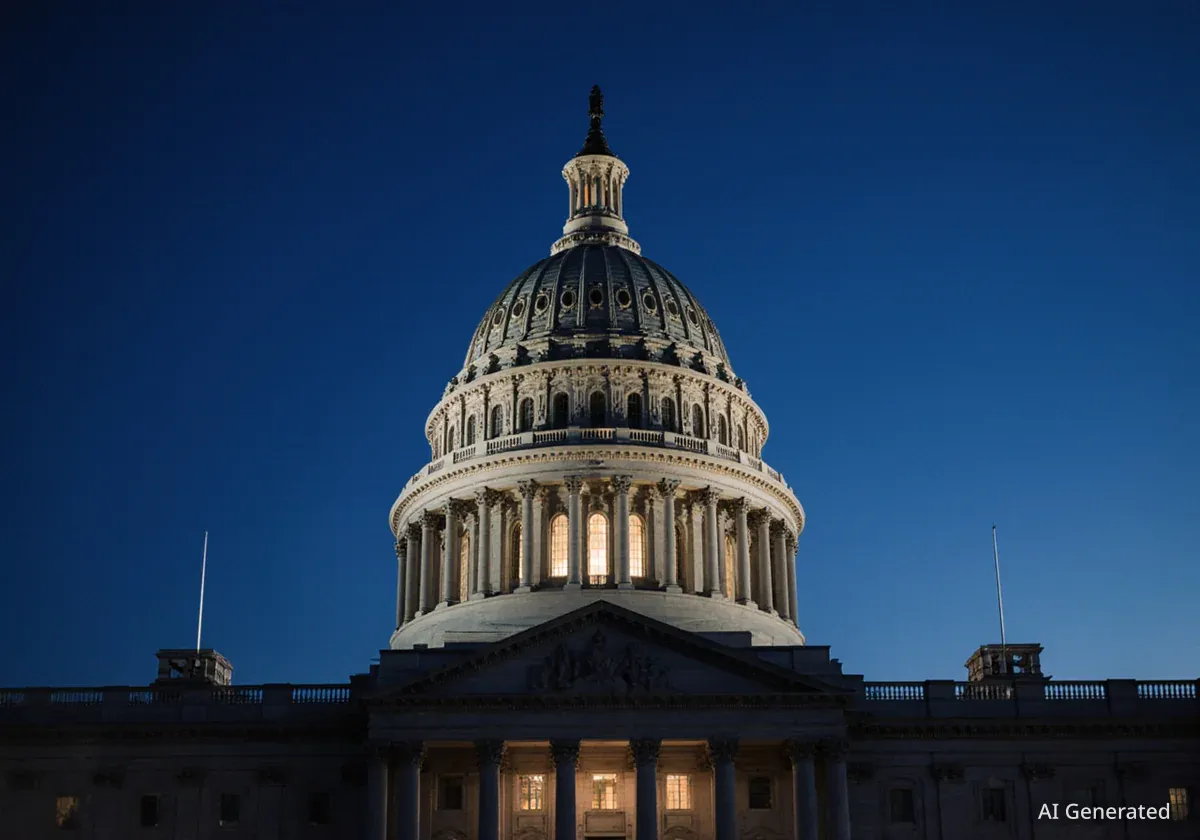A federal government shutdown, now in its 24th day, threatens to cut off vital food assistance for approximately 750,000 Oregonians starting November 1. Among those bracing for impact are thousands of students at Portland State University, who rely on the Supplemental Nutrition Assistance Program (SNAP) to afford groceries.
In response, the university's on-campus food pantry is preparing for a significant increase in demand as students grapple with the potential loss of a crucial financial lifeline.
Key Takeaways
- Around 750,000 Oregonians, or 1 in 6 residents, could lose SNAP benefits next month due to a federal government shutdown.
- Portland State University's food pantry anticipates a major surge in student visitors if the benefits are halted.
- Data from this year shows about 11,000 PSU students already reported experiencing food insecurity.
- Students who depend on SNAP express deep concern over how they will cover food costs, with some receiving up to $290 per month.
The Human Cost of a Political Stalemate
For many students at Portland State University, the ongoing government shutdown is not a distant political headline; it's a looming personal crisis. The potential suspension of SNAP benefits represents the loss of a stable food source, forcing difficult choices between meals and other essential expenses like rent and tuition.
Ray, a senior at PSU, depends on the program for her food budget. She receives approximately $290 a month, the maximum amount for a full-time student. The uncertainty has left her feeling anxious about her finances.
"Without that money, I have to find a way to take it from something else," she explained. "I feel powerless about it because this is something that... I didn't shut down the government; nobody I know shut down the government and chose to have this."
This sentiment is shared by others across campus. Juli, a freshman and a full-time mother, described SNAP as an essential support system for her family. "It's something that me and my kids depend on a lot," she said. "It's something that I am concerned about."
What is SNAP?
The Supplemental Nutrition Assistance Program (SNAP) is a federal program that provides food-purchasing assistance for low-income individuals and families. It is a critical resource for many, including a growing number of college students who struggle to balance academic responsibilities with the high cost of living.
A Campus Prepares for an Influx
At the heart of the university's response is the Smallwood Food Pantry. Tess Conley, the pantry's food coordinator, is preparing for a significant increase in traffic if SNAP benefits are suspended.
"We expect to see a huge influx in people utilizing the pantry," Conley stated, highlighting the critical role the service plays for the student body. The pantry is already a vital resource on campus, but the current situation threatens to stretch its capacity.
11,000 PSU students reported being food insecure this year, a figure recorded before the potential cuts to SNAP benefits. This demonstrates a pre-existing vulnerability among the student population that the shutdown could severely worsen.
Conley and her team are working to ensure they can meet the rising demand. She advises students who may be affected to begin preparing now. "I would say to start thinking ahead, visit the pantry as often as possible, and start stocking up on dried goods, things that are going to keep in your pantry," she recommended.
Despite the challenge, Conley emphasized the pantry's commitment to the community. "I don't want to instill any fear or have people panic because we aren't going anywhere, and we are going to be here to support you as best we can throughout the entire month of November — and however long this might last."
Navigating Uncertainty on Campus
The political gridlock over healthcare funding, which triggered the shutdown, has created a ripple effect that is now being felt directly by students. Marin, a junior at PSU, is one of many turning to the on-campus pantry to build a safety net.
"I think I have a plan to move forward," Marin said, though she acknowledged the underlying anxiety. "Of course, there is that worry that things might not go to plan."
This proactive approach is what pantry staff are encouraging. By stocking non-perishable items like pasta, rice, and canned goods, students can create a buffer to help them through a potential gap in benefits. The pantry provides these essential items free of charge to any student in need.
How Students Can Prepare
- Visit the Food Pantry: Familiarize yourself with the pantry's location, hours, and resources.
- Stock Up on Non-Perishables: Collect items with a long shelf life, such as dried beans, pasta, canned vegetables, and grains.
- Budget Accordingly: Review personal finances to identify areas where spending can be temporarily reduced to reallocate funds for food.
- Seek Campus Resources: Explore other student support services offered by the university that may provide financial or wellness assistance.
A Wider Issue of Student Hunger
The situation at Portland State University highlights a national issue: food insecurity is a significant barrier to academic success for college students across the country. The high cost of tuition, housing, and books often leaves little room in the budget for adequate nutrition.
Programs like SNAP are not just supplementary income; for many students, they are the key to staying enrolled and focusing on their studies. When this support is threatened, it jeopardizes not only their well-being but also their educational goals.
As the November 1 deadline approaches, students and university staff can only watch and wait for a resolution in Washington. For families like Juli's, the stakes are incredibly high. "I really think they need to get it together so that people can... families can have what they need to survive out here," she urged.





